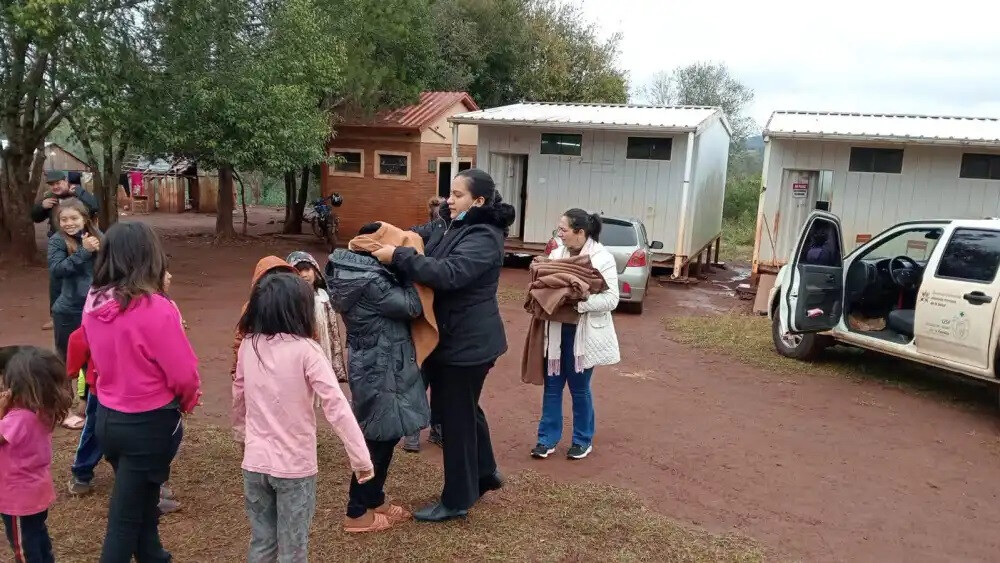
Amidst a fierce cold snap in Itapúa, officials from Health Region VII demonstrated an exemplary act of giving. They delivered warm ponchos to students in indigenous communities across Itapúa, providing much-needed warmth to children vulnerable to the cold.
This outreach initiative stemmed from concerns about the intense cold wave and low temperatures gripping the southern region. The voluntary participation of Health Region VII officials highlighted not only their administrative capacity in public health but also their strong sense of social responsibility.
According to local health authorities, Itapúa is located in southeastern Paraguay, bordering Argentina. It shares a geographical proximity with Argentina's Misiones Province and is a vital region within Paraguay known for its developed agriculture and livestock industries.
While Itapúa generally experiences a subtropical climate, with hot and humid summers and relatively mild winters, recent years have seen a frequent and sharp drop in winter temperatures due to climate change. This climatic shift particularly affects indigenous communities, who often lack adequate heating facilities and face economic vulnerabilities.
The poncho donation was spearheaded by the Indigenous Health Coordinator for the regional health office, with active participation and support from various officials within Health Region VII. The donated items specifically targeted students from the Manduví'y, Paraíso, and Ka’aguy Poty indigenous communities. Students from these schools beamed with joy, expressing their delight as they wore the warm, soft microfiber ponchos. These ponchos are expected to significantly help protect the children from the cold weather and safeguard their health.
During the delivery ceremony, officials took time to converse with the children about the importance of personal hygiene and how to care for their clothing. This was part of a preventative education effort aimed at protecting the health of indigenous students, who are particularly susceptible to cold weather. A health official emphasized, "Cold weather weakens immunity and increases the risk of respiratory illnesses. Hygiene education is especially crucial for growing children." This education is expected to contribute to the long-term health improvement of indigenous communities.
Itapúa is home to several indigenous communities, primarily inhabited by the Mbyá Guaraní people. They reside across various areas, and many have limited contact with modern civilization, making widespread societal interest and support essential. Facing numerous challenges such as poor living conditions, limited access to healthcare, and restricted educational opportunities, they require sustained attention and assistance not only from government authorities but also from civil society as a whole. Small acts of giving, like this poncho donation, can collectively contribute to improving their quality of life.
This event is seen as an excellent example of community interest in vulnerable populations and the spirit of sharing. It is hoped that such heartwarming activities will continue, bringing positive change to the lives of indigenous communities.
[Copyright (c) Global Economic Times. All Rights Reserved.]




























